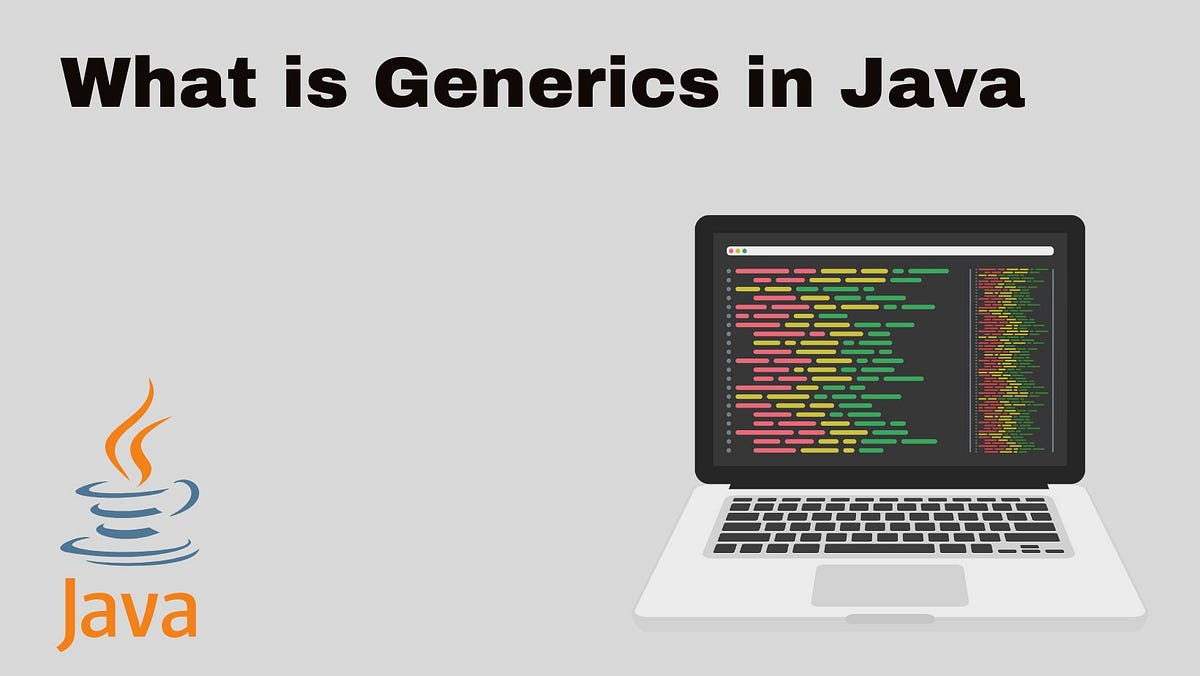Unveiling the Magic: A Journey into the World of Java Generics
 Harish Selva
Harish Selva
Introduction:
Welcome, fellow adventurers, to a realm where type safety meets flexibility, where the power of abstraction reigns supreme—the realm of Java Generics! In this enchanting journey, we'll embark on a quest to unravel the mysteries of type parameters and discover the hidden treasures of generic programming.
Chapter 1: The Quest Begins What are generics?
Imagine you're a master blacksmith in a bustling medieval marketplace. Your job is to craft exquisite swords for the knights who roam the land. Each knight has their own unique style, wielding swords of various shapes and sizes.
In the world of Java programming, classes and methods are like blacksmith's tools, designed to process data efficiently. However, without generics, these tools would be limited to working with specific types of data, much like a blacksmith who can only forge one type of sword.
Enter generics—the magical enchantment that allows our tools to adapt to any type of data. With generics, we can create versatile classes and methods that can handle different types of data with ease. Just as the blacksmith can craft swords of various designs, Java generics empower us to build code that is flexible, reusable, and adaptable to a wide range of scenarios.
Chapter 2: The Elegance of Type Parameters
Let's say you're tasked with creating a treasure chest to store valuable artifacts. Using generics, you can design a chest that can hold any type of treasure, whether it's gold coins, precious gems, or ancient scrolls.
In this example, theT represents a type parameter that can be replaced with any specific data type when the class is instantiated. This allows us to create a single treasure chest class that can store and retrieve treasures of any type without the need for separate implementations.
Chapter 3: Taming the Wildcards: Boundless Flexibility
Imagine you're organizing a grand banquet, and guests of all backgrounds and preferences are invited. To accommodate everyone, you decide to create a menu with wildcards, allowing guests to choose their favorite dishes without restrictions.
In this example, the wildcard ? extends Dish allows theprintMenu method to accept a list of any type that extends the Dish class. This means we can pass a list of appetizers, main courses, or desserts, providing boundless flexibility without sacrificing type safety.
Chapter 4: The Quest Continues: Practical Applications
Let's imagine you're building a library management system. With generics, you can create aLibrary class that can manage various types of books, whether they're novels, textbooks, or reference guides.
In this example, the type parameter T is bound by theBook class, ensuring that only book objects can be added to the library. This allows us to create a generic library class that can manage collections of books of any specific type, providing a flexible and reusable solution for our library management needs.
Chapter 5: The Final Revelation—Embracing the Magic
As we conclude our journey into the realm of Java Generics, let us reflect on the true essence of this magical enchantment. Java generics empower us to write code that is not only robust and efficient but also elegant and adaptable. By embracing generics, we unlock the power of abstraction, allowing our code to transcend the limitations of specific data types and evolve with ease as our needs change over time.
In the vast landscape of software development, Java generics stand as a testament to the ingenuity and creativity of the programming community. They are not just a tool or a feature; they are a symbol of our ability to innovate, to explore, and to push the boundaries of what is possible. So let us continue our quest for knowledge, guided by the magic of generics, and embark on new adventures that await us in the ever-expanding world of programming.
Subscribe to my newsletter
Read articles from Harish Selva directly inside your inbox. Subscribe to the newsletter, and don't miss out.
Written by
